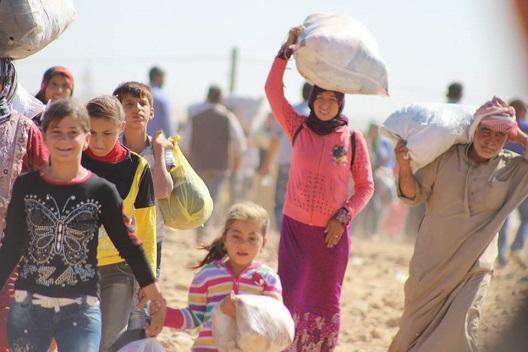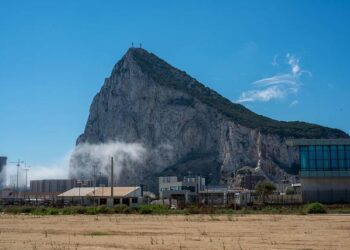Over 60 Kurdish migrants have been reportedly detained by human traffickers in Libya, according to a refugee non-profit organization. The migrants, who were seeking safer passage to Europe, remain held in dire conditions amid ongoing instability in the region. This alarming development highlights the persistent dangers faced by displaced populations attempting perilous journeys through Libya, a known transit hub for human smuggling. Authorities and humanitarian groups are calling for urgent action to address the exploitation and protection of vulnerable migrants trapped in the country.
Human Rights Concerns Raised as Kurdish Migrants Held by Human Traffickers in Libya
Reports from humanitarian organizations reveal a distressing situation involving more than 60 Kurdish migrants currently held captive by human traffickers in Libya. These individuals, many of whom fled conflict zones seeking safety, have become vulnerable to exploitation and abuse amid Libya’s ongoing instability. The refugee non-profit group, actively tracking migration flows, highlighted the deteriorating conditions faced by these detainees, including overcrowded confinement, insufficient access to medical care, and threats of violence.
Human rights advocates emphasize an urgent need for coordinated international intervention to ensure the safe release of the migrants and dismantle trafficking networks operating in the region. Key concerns raised by these organizations include:
- Lack of legal protection leaving victims vulnerable to continued abuse
- Inadequate living conditions exacerbating health risks
- Limited access to humanitarian aid due to armed conflict and political fragmentation
- Impediments to repatriation and resettlement delaying hope for a safe future
| Issue | Impact | |||||||||||||||||||||||||||||||||||||
|---|---|---|---|---|---|---|---|---|---|---|---|---|---|---|---|---|---|---|---|---|---|---|---|---|---|---|---|---|---|---|---|---|---|---|---|---|---|---|
| Overcrowding | Increased disease transmission | |||||||||||||||||||||||||||||||||||||
| Medical shortages | Untreated injuries and illnesses | |||||||||||||||||||||||||||||||||||||
| Psychological trauma | Long-term mental health issues | |||||||||||||||||||||||||||||||||||||
| Restricted mobility |
| Issue | Impact | ||||||||||||||||||||||||||||||
|---|---|---|---|---|---|---|---|---|---|---|---|---|---|---|---|---|---|---|---|---|---|---|---|---|---|---|---|---|---|---|---|
| Overcrowding | Increased disease transmission | ||||||||||||||||||||||||||||||
| Medical shortages | Untreated injuries and illnesses | ||||||||||||||||||||||||||||||
| Psychological trauma | Challenges Faced by Refugees in Libya’s Detention Centers Highlighted by Non-Profit Humanitarian organizations have brought to light the alarming conditions endured by refugees in Libya’s detention centers, where over 60 Kurdish migrants were recently held captive by human trafficking networks. Inside these overcrowded facilities, detainees face rampant abuse, including physical violence, inadequate medical care, and severe malnutrition. Reports indicate that many migrants are subjected to psychological torment as traffickers demand exorbitant ransoms from their families, perpetuating a cycle of exploitation and fear. To better understand the dire situation, the following table summarizes some critical challenges faced by detainees in Libya’s detention centers:
Non-profit groups continue to advocate for international intervention and enhanced protection measures, emphasizing that immediate action is critical to alleviate the suffering of detainees and dismantle trafficking rings preying on vulnerable populations. Urgent Calls for International Intervention and Enhanced Protection Measures for Migrants in LibyaInternational organizations and humanitarian agencies are intensifying appeals for immediate action as the plight of migrants in Libya becomes increasingly dire. Following reports of over 60 Kurdish migrants being illegally detained by human traffickers, experts warn that the absence of robust protection mechanisms leaves vulnerable populations exposed to violence, exploitation, and human rights abuses. The volatile security situation further complicates rescue and relief operations, urging a coordinated global response prioritizing safe corridors and evacuation plans. Advocates emphasize the urgent need to implement comprehensive measures that include:
|








![2 Days in Gibraltar, a British Overseas Territory [Activities, Hotels] – Upgraded Points](https://europ.info/wp-content/uploads/2026/02/3041513-2-days-in-gibraltar-a-british-overseas-territory-activities-hotels-upgraded-points-350x250.jpg)







